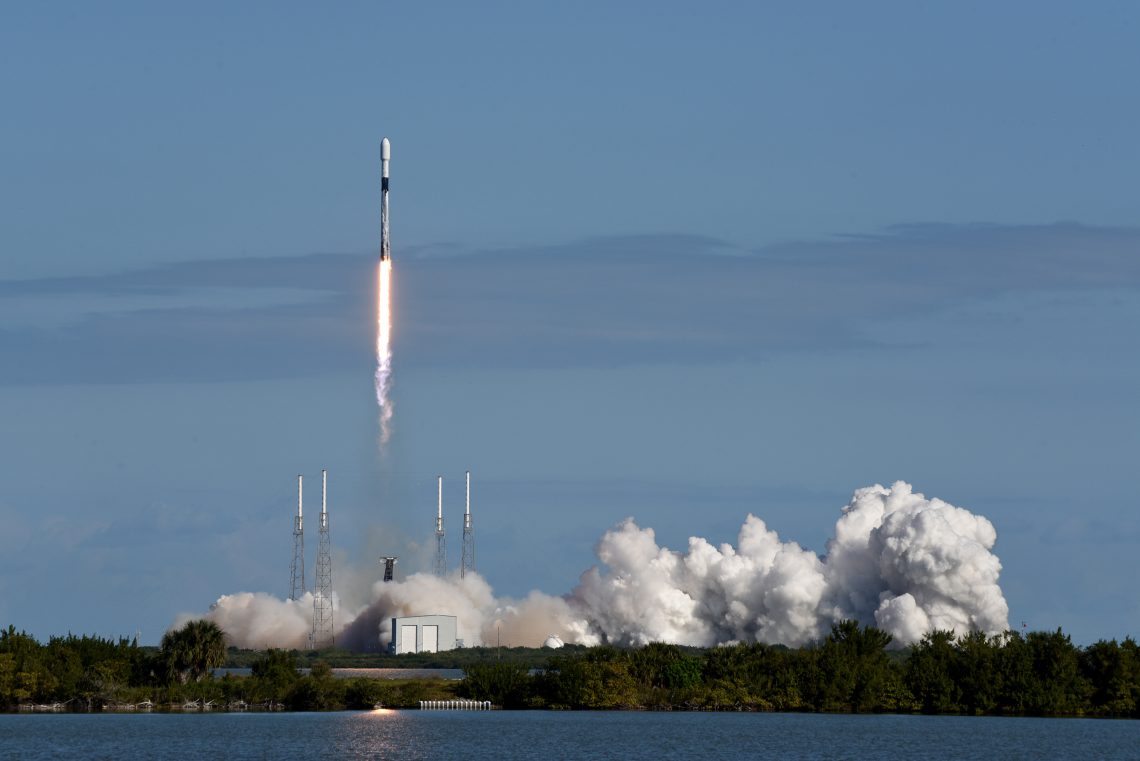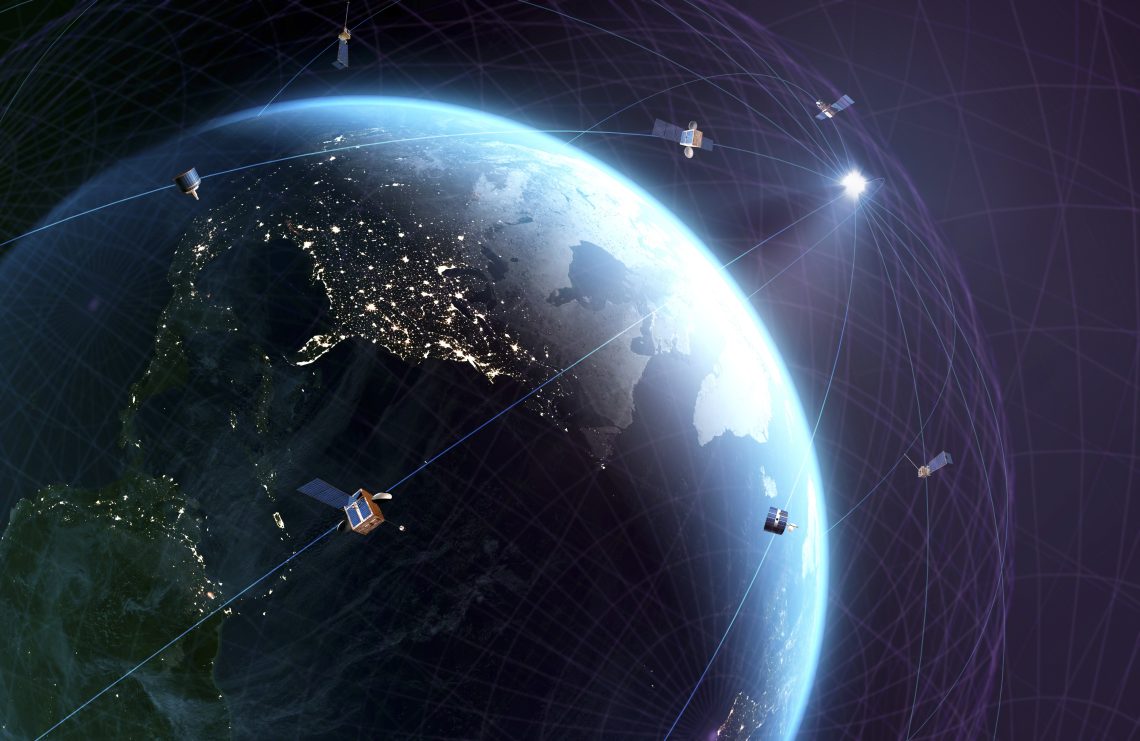The rocketing significance of space
As activity in space becomes more necessary, it will also become more commonplace, both in the military and private sectors. Lower costs and greater access mean non-state actors will also play prominent roles.

In a nutshell
- As technology develops and costs drop, activity in space will accelerate
- New space initiatives will expand our ability to collect and analyze data
- The security issues posed by space activity will become more complex
Over the next decade, human activity in space will become commonplace. Unlike the space race of the last century, the great powers will not be the only big players. Along with less-powerful countries, non-state actors and the private sector will also play prominent roles.
It is unlikely that a new, expanding framework of international agreements will materialize to manage this expansion. Instead, norms that respect freedom of operations in space will emerge out of mutual need.
Technologies will arise that enhance both crewed and uncrewed space operations. Space technology will also help to better accumulate and manage data on human activity worldwide, improving a host of commercial and national security operations.
Space economy
In 2020, according to the Space Foundation, the global space economy rose to an astonishing $447 billion. For perspective, that amounts to an average of about 0.5 percent of gross domestic product for any given G20 country. A 2018 report from Morgan Stanley predicts that the revenue generated by the global space industry could increase to $1.1 trillion by 2040. That would be an impressive contribution to the overall global economy.
The economic growth generated by the space economy will likely increase at an unprecedented rate.
Already, the space industry is integral to economic growth. It is crucial for activities from weather prediction to global positioning systems to geospatial sensors and data collection. Sinead O’Sullivan, of Harvard Business School, claims that a dollar spent in the space economy generates nearly $50 in societal value. If we take the $447 billion figure into account, the amount comes to some $250 trillion, more than 10 times the size of the United States economy. Whatever the actual number, the impact is unquestionably immense, and the economic growth generated by the space economy will likely increase at an unprecedented rate over the coming years.
Private investment in space
The most significant trend in the space economy is the increasing role of the private sector. According to Fast Company, commercial work accounted for almost 80 percent of the space economy. This development is spurring a new generation of “Silicon Valleys” – clusters of space innovation and productivity.
SpaceX’s advancements, for example, regenerated a space manufacturing base south of Los Angeles that some are calling “Rocket Row.” It includes companies like ABL Space Systems, Relativity Space, and Millennium Space Systems. Many of these innovation centers are increasingly networking through joint projects and by acquiring companies in the U.S., Japan, South Korea, the United Kingdom, Israel and others.

The space industry is attracting a rapid increase in venture capital and other private investment. According to venture capital firm Space Capital, in 2021 investors poured more than $25 billion into new space start-ups. In the last few years, hundreds of independent new space companies have emerged. The expectation is that this private sector activity will spark growth across the space economy.
Space infrastructure
Increasingly cheaper launch costs are crucial for the expansion of the space economy and will make even smaller, developing states capable of engaging in activities in space. More accessible launch services will also significantly expand access to the space economy to the private sector and non-state actors, from nongovernmental organizations to “space mercenaries” who contract their services to the highest bidder.
While suborbital tourism has grabbed headlines, it has overshadowed the infrastructure being built, according to Heritage Foundation defense policy research fellow John Venable. The most notable trend is in the deployment of “small satellites” that can deliver a range of boutique services from “high-resolution images of Earth for identifying methane leaks contributing to greenhouse gas emissions.” One of the most notable emerging companies is the Finnish firm ICEYE, which deploys assets to support environmental and humanitarian operations.
Space services
Providing services in space will become a significant component of the commercial sector. This will include operations from refueling to repairing satellites – including the replacement of satellite components and subsystems, as well as repairing and replacing solar arrays. In 2020, Astroscale, a Japan-based company, acquired UK-based Effective Space Solutions Ltd. to develop a multinational industrial base for robotic space-repair technology.
Experts expect that commercial debris removal operations for military and civilian purposes will emerge.
Space debris and debris fields are already presenting a significant challenge. Further, the development of anti-satellite and laser weapons used in military competition to destroy or disable satellites could generate significant debris fields that would hinder orbital activities. Experts expect that commercial debris removal operations for military and civilian purposes will emerge. Astroscale, which recently launched a space debris removal demonstrator, says it wants to develop “a full-service debris removal offering by 2024.”
Military capabilities
A proliferation of space-to-ground and space-to-space capabilities, both crewed and uncrewed, is likely. The significance of the recent Chinese test of a hypersonic vehicle was not that it showed it could field a weapon that travels at five times the speed of sound. Rather, it demonstrated two dramatic new capabilities: first, that China could rapidly put assets in orbit (making all satellites potential bomb carriers) and second, that it could launch a separate vehicle from a hypersonic-speed launcher.
Heritage Foundation China analyst Dean Cheng argues that the Chinese “have long believed that space would follow the pattern of airpower: reconnaissance first, then fighter/interceptors, then bombing missions (air-to-ground). They have now demonstrated that they are pursuing that range of capabilities.” There is every expectation that the U.S. and Russia will seek to match them soon.
Humans in space
There are realistic expectations for an increased number of crewed orbiting stations, lunar-gateway projects (including semipermanent or continuous crews) and human exploration of Mars in the near term.
Unlike other aspects of the space economy, crewed space missions could well be fueled by geopolitical competition, with great powers using space deployment to showcase their technical prowess and intrepid spirit. There is every likelihood that within decades several state and non-state actors could match these efforts as the cost of launch vehicles declines and space technologies become widespread.
Deep impact
Over the next few years, the space economy’s most profound impacts will be on terrestrial activities. Any endeavor that requires the mass accumulation and analysis of data will be particularly affected. As the data-rich economy develops, fueled by the proliferation of 5G and 6G telecommunications and the rapid spread of the Internet of Things, space-based sensors will play an increasing role. Once they are more easily deployed and scaled to facilitated data needs, their capabilities will be combined with the growing capacity for data storage and computer processing.
The space economy could level the playing field in the great power struggle and global economic competition.
These resources will not only be used for national security and defense, but also for commercial operations and worldwide initiatives such as dealing with climate change. Global surveillance and near-universal situational awareness of environmental conditions worldwide, for instance, is virtually assured to emerge in the coming years.
Scenarios
The space economy could level the playing field in the great power struggle and global economic competition. Commercial space capabilities will become ubiquitous, available to anyone that can pay for them. That dynamic is already present in the global economy. However, many of what are considered “second-tier states” today (such as Turkey, South Korea, Japan and Israel) may well dominate by the end of the decade.
This could alter the nature of security competition and boost the global economy. Militaries will find it increasingly difficult to surprise their enemies by appearing in unexpected locations. As all actors become more dependent on space, competition there will become riskier.
Meanwhile, the rules, competitive practices and norms that have developed around the internet could serve as models for how the governance of space could emerge in the future.







